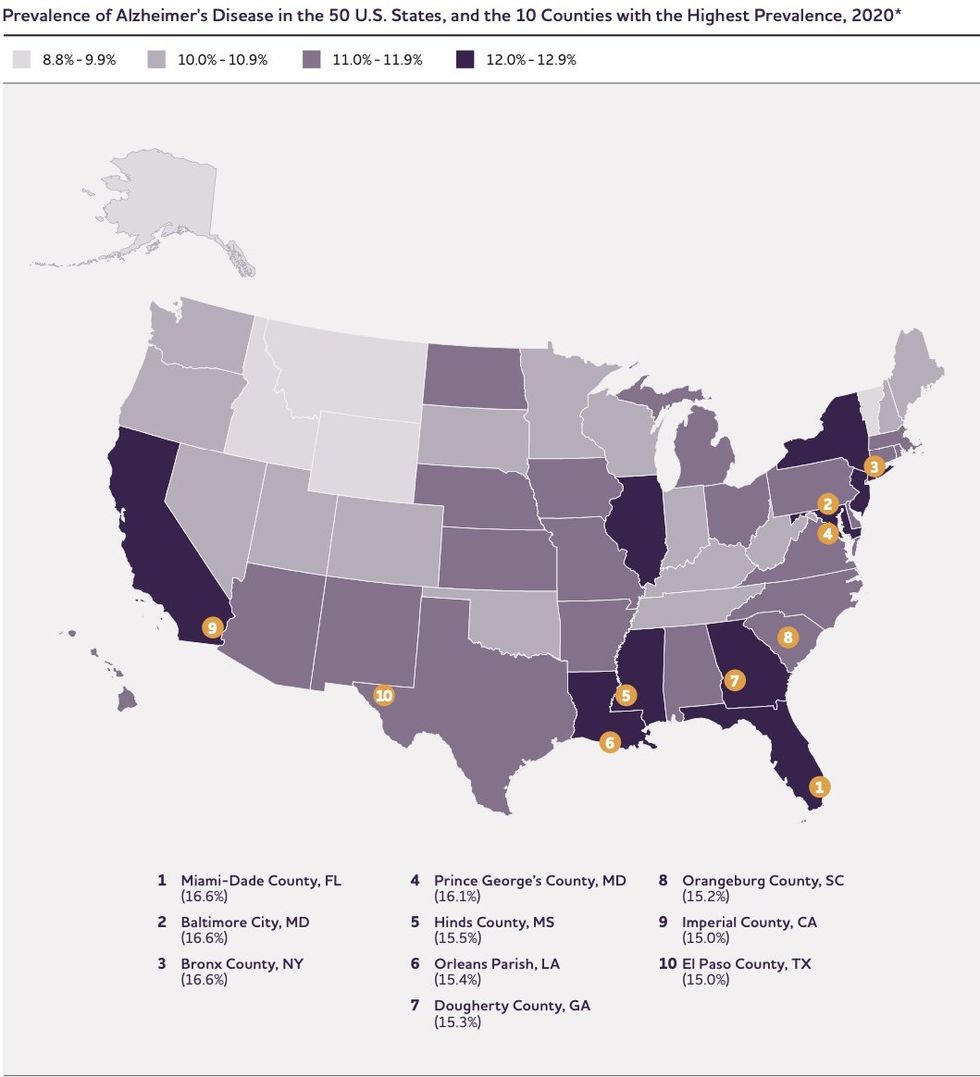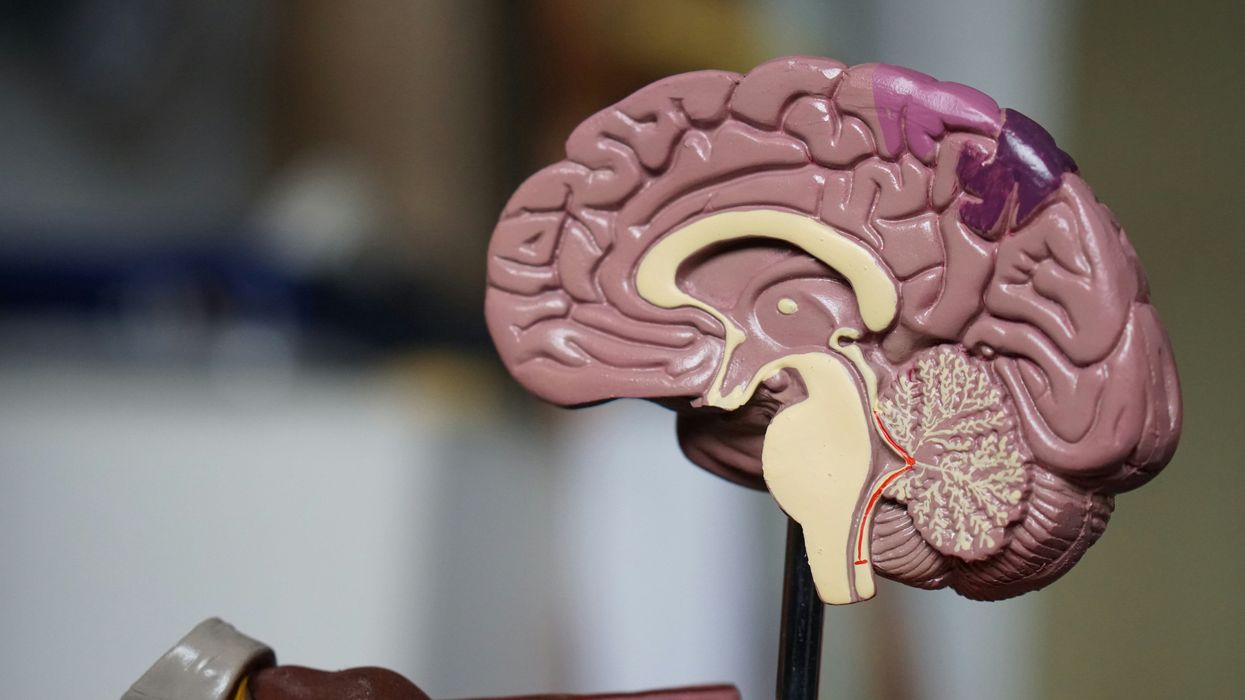Newly appointed Secretary for Health and Human Services Robert F. Kennedy Jr. has his work cut out regarding brain health among elderly Americans. A study published in Nature Journal earlier this year estimates that the number of new dementia cases in people 65 years and older in the U.S. will double over the next four decades, from about 514,000 in 2020 to about 1 million in 2060. The total number of people currently living with Alzheimer’s dementia is close to 7 million.
The same study also highlights that Black Americans are twice as likely to develop dementia later in life, compared to White Americans, and Latinos are one and a half more likely. These results underscore the urgent need for policies promoting healthy aging and addressing health inequities' root causes, which includes access to affordable and nutritious foods. Kennedy’s Make America Healthy Again (MAHA) agenda features chronic diseases and improved lifestyles. Whether everyone will benefit equally or not, depends on his political will to address systemic inequalities.
Baltimore City and Prince George’s County, Maryland, rank among the top five U.S. locations with the highest prevalence of Alzheimer’s disease, a leading cause of dementia, according to the Alzheimer’s Association’s 2024 Facts and Figures report. Also in that top tier are Miami-Dade County, Florida, and The Bronx, New York. These high-prevalence areas have significant Black and Brown populations, underscoring the need for more tailored prevention and management approaches.
 2024 Facts and Figures report
2024 Facts and Figures report
“When my aunt was first diagnosed with dementia a few years ago, witnessing her steady memory loss nearly broke me,” Nathaniel C. Brown told the Fulcrum. The Baltimore native, now living in Atlanta, is the founder of Expose Dementia, an organization seeking to raise awareness about dementia in the African American community through art and advocacy. He is also the producer of Remember Me, a documentary on dementia screening nationwide.
“My family has been hit hard by dementia, but until it happened, we didn’t know much about it or what caused it,” says Brown, who stars in That’s My Brother, a short film he produced that explores the impact of this disease on family members. Experts say that lack of knowledge about dementia and dementia-related conditions is indeed a big part of the problem, especially among the hardest-hit communities. This prompted Brown, a former journalist and TV producer, to start his advocacy organization.
- YouTubewww.youtube.com
The Mayo Clinic describes dementia not as one specific disease but as an umbrella term for a range of symptoms that cover difficulties with memory, language, problem-solving, and other thinking skills that affect a person’s ability to perform everyday activities. Alzheimer’s disease is one of the most common causes of dementia that affects the parts of the brain associated with learning. Parkinson’s disease is another one. There are over 100 different diseases and injuries that can impair brain health.
Health conditions like hypertension, diabetes, high blood pressure, and smoking increase the risk of dementia and are more prevalent in Black and Brown communities. The National Academy of Sciences, Engineering, and Medicine’s 2024 Ending Unequal Treatment says that social, economic, and environmental factors systemically undermine health outcomes in communities of color across the U.S.
These factors include barriers to quality and affordable care, structural racism, limited resources, lack of partnerships, and the political will to improve health access. Lack of trust and stigma around mental health, says Brown, also contribute to late diagnosis and high prevalence rates of dementia among African Americans. “The syphilis study at Tuskegee and other unethical research conducted in the Black community make it hard to trust the medical establishment,” he says. “Overall stress, overt and covert racism, and microaggressions all add up. These issues all compound each other.”
As Americans live longer, the need for long-term care increases, and so will the cost of care. In 2030, one in five Americans is expected to be 65 years and older. Emily Kearns, a dementia specialist and a coordinator with Dementia Friendly Baltimore County, tells the Fulcrum that the country is facing a “demographic press,” a rapidly aging population with not enough services to cater to the health needs of older people, especially those who are increasingly likely to suffer from dementia.
Kearns, who has first-hand experience caring for relatives with dementia, urges policymakers to “borrow a page” from the disability movement. “Why can't we reframe dementia as living with a disability?” she asks. “We need cognitive ramps just as we have physical ramps for those with wheelchairs. We need signage that make it accessible to those living with cognitive challenges, especially those in the early stages.”
Dementia Friendly Baltimore is part of Dementia Friendly America, a national initiative committed to supporting people living with dementia and their care partners so they can safely live in their community and have meaningful lives. Compared to other areas with a high prevalence of dementia, Baltimore is small, and this can be an advantage, says Kearns. Recently, they launched a Living with Dementia Roadmap, a resource-filled tool that helps people with dementia and their families navigate the dementia journey, from early diagnosis to community living, end-of-life care options, and grief.
For Kearns, Brown, and other dementia activists, advocacy is critical for raising public awareness around dementia, especially in the most impacted communities. “This is a public health crisis, and we are swimming in it,” says Kearns. “Everyone has a role to play and become a dementia champion.” Though there is no cure, there are medicines that can slow down the progression of dementia-related illnesses, and prevention can be a game changer.
“A positive message is that focusing on a healthy lifestyle and improving heart health will have important benefits for your brain health and preventing dementia,” says Elizabeth Selvin, professor of epidemiology at Johns Hopkins University, in an article. “If you prevent diabetes in middle age, if you improve diabetes control, if you prevent hypertension, if you aggressively manage blood pressure, this has long-term benefits that can delay or prevent dementia in later life.”
“We believe that engaging diverse perspectives is critical to achieving health equity. We need all communities to have a fair and just opportunity for early diagnosis, access to healthcare, access to risk reduction, and quality care,” says Kristi Moss, Program Manager with the Alzheimer's Association of Greater Maryland, in an interview with the Fulcrum. They offer resources in multiple languages and regularly host Latino support groups, including a Latino Café and a Latino caregivers meetup.
Brown, who is doing his part to empower African Americans with the knowledge and tools to understand what dementia is and how to prevent it, says that witnessing family members struggle with dementia forever changed him. “Dementia saved me today. Not yesterday, not tomorrow, but today because I don't know what will happen tomorrow. I may not remember tomorrow, but if I can have an impact today, I'm going to do it. Today, I value time and people more than ever before.”
Beatrice Spadacini is a freelance journalist for the Fulcrum. Spadacini writes about social justice and public health.




















Trump & Hegseth gave Mark Kelly a huge 2028 gift